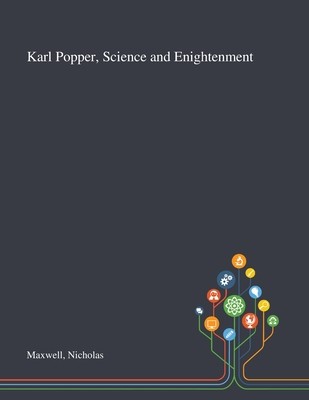
- We will send in 10–14 business days.
- Author: Nicholas Maxwell
- Publisher: Saint Philip Street Press
- ISBN-10: 1013288505
- ISBN-13: 9781013288500
- Format: 21.6 x 27.9 x 2.1 cm, minkšti viršeliai
- Language: English
- SAVE -10% with code: EXTRA
Reviews
Description
Here is an idea that just might save the world. It is that science, properly understood, provides us with the methodological key to the salvation of humanity. A version of this idea can be found in the works of Karl Popper. Famously, Popper argued that science cannot verify theories but can only refute them, and this is how science makes progress. Scientists are forced to think up something better, and it is this, according to Popper, that drives science forward. But Nicholas Maxwell finds a flaw in this line of argument. Physicists only ever accept theories that are unified - theories that depict the same laws applying to the range of phenomena to which the theory applies - even though many other empirically more successful disunified theories are always available. This means that science makes a questionable assumption about the universe, namely that all disunified theories are false. Without some such presupposition as this, the whole empirical method of science breaks down. By proposing a new conception of scientific methodology, which can be applied to all worthwhile human endeavours with problematic aims, Maxwell argues for a revolution in academic inquiry to help humanity make progress towards a better, more civilized and enlightened world.
This work was published by Saint Philip Street Press pursuant to a Creative Commons license permitting commercial use. All rights not granted by the work's license are retained by the author or authors.EXTRA 10 % discount with code: EXTRA
The promotion ends in 22d.05:36:12
The discount code is valid when purchasing from 10 €. Discounts do not stack.
- Author: Nicholas Maxwell
- Publisher: Saint Philip Street Press
- ISBN-10: 1013288505
- ISBN-13: 9781013288500
- Format: 21.6 x 27.9 x 2.1 cm, minkšti viršeliai
- Language: English English
Here is an idea that just might save the world. It is that science, properly understood, provides us with the methodological key to the salvation of humanity. A version of this idea can be found in the works of Karl Popper. Famously, Popper argued that science cannot verify theories but can only refute them, and this is how science makes progress. Scientists are forced to think up something better, and it is this, according to Popper, that drives science forward. But Nicholas Maxwell finds a flaw in this line of argument. Physicists only ever accept theories that are unified - theories that depict the same laws applying to the range of phenomena to which the theory applies - even though many other empirically more successful disunified theories are always available. This means that science makes a questionable assumption about the universe, namely that all disunified theories are false. Without some such presupposition as this, the whole empirical method of science breaks down. By proposing a new conception of scientific methodology, which can be applied to all worthwhile human endeavours with problematic aims, Maxwell argues for a revolution in academic inquiry to help humanity make progress towards a better, more civilized and enlightened world.
This work was published by Saint Philip Street Press pursuant to a Creative Commons license permitting commercial use. All rights not granted by the work's license are retained by the author or authors.

Reviews